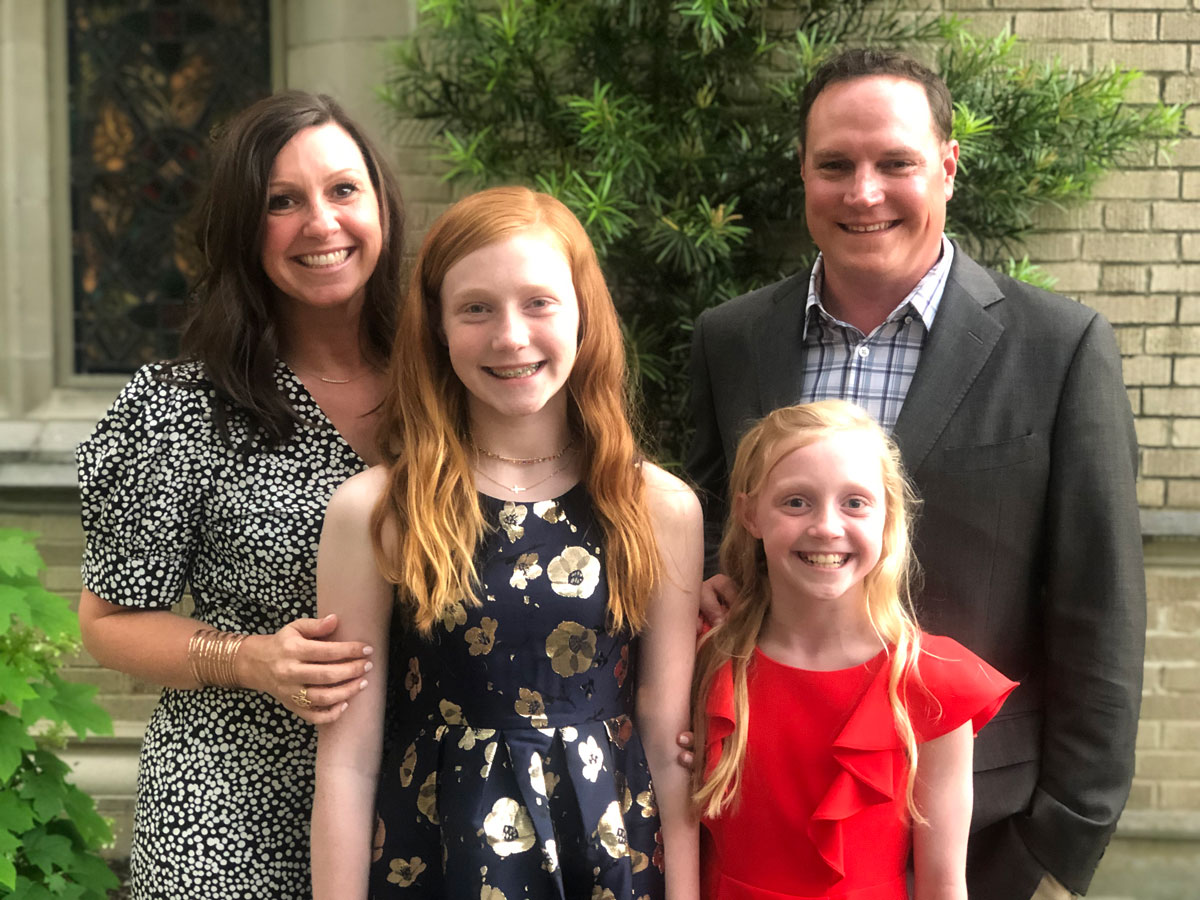Sponsored Post
You might say Melissa McMillian was born for the position she now holds as a Senior Vice President, Private Wealth Advisor. “I’ve always loved math and working with numbers,” she said. “I make lists and check off my tasks so I’m very orderly in that fashion,” she acknowledges, yet she also admits to being extroverted. For the past 20 years, after graduating from Texas A&M with a BBA in Finance, she’s married the two interests (numbers and people) in her career with Westwood Wealth Management. Perhaps her own appreciation of financial knowledge is why Melissa has developed such a passion for making sure that an integral part of her role is to not only help make her clients’ lives better by protecting and growing their assets, but also by encouraging parents to educate their children about finances.
Melissa believes that one of the best gifts a parent can give their children is to bring them in for some minor education in their high school years to let them experience what it looks like when: You save, make plans and stick to those plans; to learn how to look long term, not just ahead to the next 12 months, but the next 10 years or more. “It can make a huge difference in where the child ends up in their adult life,” she says. “What I’ve seen with many families over the course of 20 years is the children who don’t start learning about finances early and building that foundation end up having a harder time as an adult.” She believes that educating them at a young age on the advantages of saving vs. spending is critical to how that child will deal with finances later in life.
>READ: WILL YOUR WILL LEGACY BE HELPFUL OR HURTFUL?
 “Some of the families I work with bring their high school kids in with them to meet the investment professional so that the kids know they have a resource if, and when, they ever have questions. Then, in their late teens/college years, that’s when the budgeting comes into play.” She explains that you can give a kid a budget in the eighth grade and all they spend it on is new apps on their phones and clothes — but when they get to college, they really start understanding that they have to budget for various fluctuating bills and expenses. “That’s when we really start working with them, educating them on how we can plan for the next year and beyond.”
“Some of the families I work with bring their high school kids in with them to meet the investment professional so that the kids know they have a resource if, and when, they ever have questions. Then, in their late teens/college years, that’s when the budgeting comes into play.” She explains that you can give a kid a budget in the eighth grade and all they spend it on is new apps on their phones and clothes — but when they get to college, they really start understanding that they have to budget for various fluctuating bills and expenses. “That’s when we really start working with them, educating them on how we can plan for the next year and beyond.”
“Once they graduate, we walk through the basic budget questions and discuss what we think the next year is going to look like. Then it kind of morphs from there and they begin to ask a lot of questions on investing and long-term planning. We help them with things such as choosing their 401(k) investments and insurance coverage and understanding the effects of those decisions.” It’s crucial to cultivate wise money habits early because those habits will shape a child’s future financial life.
“It’s amazing that you don’t know what kind of questions to ask until you are in the real world,” she says. “Once these young adults start dipping their toes in by living on their own, they have a lot of questions about what the money can do and how they can save.”
It’s helping to lay that groundwork for young people to understand the value of a dollar and  what a dollar can buy, save or be spent on and the difference that each makes, that fosters Melissa’s passion in educating the young. And let’s not forget the power of compounding. Building a nest egg early on is much more comfortable for most people than having to play catch-up when you turn the corner and are looking at a 10-year window before you want to retire.
what a dollar can buy, save or be spent on and the difference that each makes, that fosters Melissa’s passion in educating the young. And let’s not forget the power of compounding. Building a nest egg early on is much more comfortable for most people than having to play catch-up when you turn the corner and are looking at a 10-year window before you want to retire.
A few years ago, Melissa and a colleague even co-chaired a program at Westwood by starting a Bring Your Kids to Work Day. “We brought kids of all ages and had different things throughout the office that they could do — games for learning about different parts of money and budgeting, and what the compounding of a dollar is.” And, of course, Melissa even makes sure to provide education for her own girls who are now age 13 and 10. “They’re very aware of what I do,” Melissa says. “We talk about finances and that I do what I do to help people so that they can enjoy retirement, enjoy time with their families, go on amazing vacations, and all the good things you get to do if you’ve saved and worked hard.” One of the things she and her husband are doing for their own children is implementing chores so the girls can earn their own money. “We want them to earn money to pay for things when we’re on vacation, such as souvenirs they may want.”
It’s clear that education on all levels has played an integral part of Melissa’s life and perhaps she views it as part of what she does to pass on the kind of mentoring that motivated her. Early in life, Melissa says she was aware that both of her parents had graduate degrees. “I saw that education was very important, so that was always a no-brainer.” Once Melissa started working at Westwood, she found Susan Byrne to be an obvious mentor. “She’s the founder of the firm and when she founded it in 1983, she was a single mother in her mid-30s doing amazing things and breaking barriers because women weren’t doing what she was doing. Seeing that she could kind of “do it all” definitely motivated me as I got further in my career and had my children. I felt I could do it too and have that balance.”
Today, Melissa leads a vibrant life, with a career that keeps her challenged and fulfilled, and gives her the time to enjoy soccer games and Colorado summer family trips in between. She has without a doubt “done it too” and mastered the balance she has set for herself. She is a wonderful mother and role model to her two girls, and it will be exciting to see what is ahead for her in the coming years!







